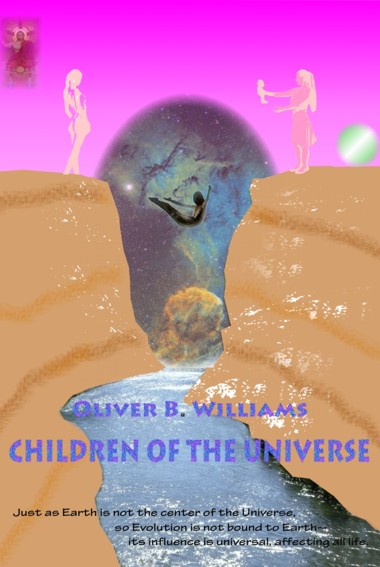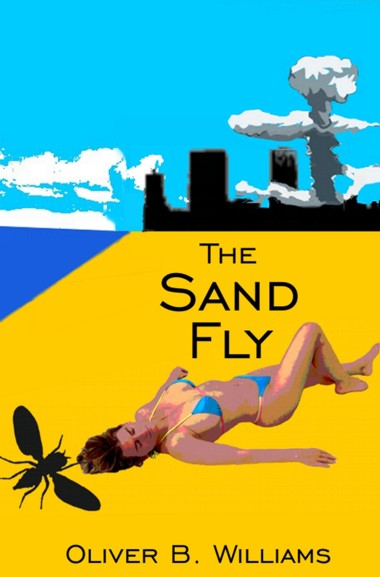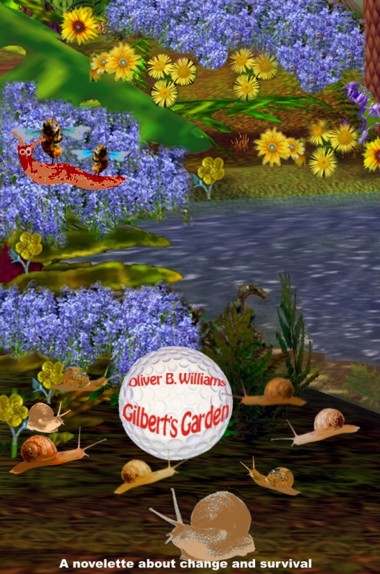


Grisly, isolated deaths traumatize the populace of mid-western and southern states. Prodigy NSA consultant Devlin Conner struggles to demystify and defuse a growing public mania of biological terrorism or new-strain epidemic. As he investigates the most recent fatality, he verifies a restaurant lobby surveillance video displaying the impossible—a vanishing man, taunting him. Compelled to refer to the deaths as murders, he was stumped. No known weapon or technology could effect the singular, targeted tissue devastation he had observed. Together with his partner Carmel Worthington and the sentient cyber-entity Barbie—whom Devlin designed and "raised"—the exploration for solutions and the meaning of the curious symboled artifacts left at each scene hurl them across the galaxy, chasing a madman who claims to be the direct blood descendent of Jesus Christ.
A super-evolved human, the psychotic Stark Luna is obsessed with destroying religion on Earth. He believes religion is the primary bulwark to Homo Sapiens’ hastened evolution. He draws Devlin into a biblically apocryphal scheme to rid Earth of worshippers and believers. In the process, Devlin encounters his own concealed past and evolutionary roots. He discovers the Evolution of life in the Universe, and its children—his brethren.
Near-naked college girls sunning on the beach, and spying through people's windows at night, possesses him. Marzee Banks is a bright African-American college student, striving to escape what he considers the hum-drum of lower middle-class blackness in Southern California. Yet he fights the battle with futility, with his voyeuristic demon gnawing and gnashing at him constantly. Almost caught while cruising a student apartment complex, he is referred to counseling by his psychology professor who witnessed him running away. While in therapy, he attempts to explore the origins of his inner demons, only to be diverted by them instead.
Uncontrollable lust obsesses him when he first encounters his philosophy instructor, a ravishing mid-thirties German woman named Utte Thorndike. Smitten by her beauty and mystique, he stalks her. Discovering her address on the Internet, he visits her neighborhood, peeps through her bedroom window at night, and finally enters her house when it is vacant. What he discovers and what he hears while hiding frantically in a broom closet throws his already chaotic life into a frenzy. Loss, abandonment, grief, and trust—all rush in to replace his obsessions as he races to protect that which he yearned to escape.
Forlorn and alone, Joe Axelrod was lost—his big rig truck hinged within a dead-end at the edge of a rural suburban development. Searching for meaning in his life, his ruminations were suddenly interrupted by a UFO—not extraterrestrial, but what he deemed even more preposterous: a wide-eyed slug carried by two bees. The shock of this visage catalyzed an epiphany, and his thoughts converged to strategy. Yet his fortuitous detour into Shangri-La generates multiple effects, changing both his life and the life of the tiny inhabitants only fifty yards from where he had stopped.
The snails and slugs of the mollusk community of WhereWeLive know everything there is to know. All that exists is there, and anything appearing external appears for their benefit. That's how their leader, Gilbert, interprets reality for them—and they are content to follow his direction. Gilbert's daughter, Darcy, had discovered the water level in the central pond decreasing gradually by using the forbidden techniques: experimentation and measurement. She and her odd, sage-like slug companion, Linus, set out to explore an external world, searching for the cause of the dwindling water, and a place for the colony to migrate. More crucial, they discover that events in the world outside of WhereWeLive have profound effects upon their tiny community.
A desperate man staring down a tunnel of disillusionment, or a colony of snails facing decimation—both must act to survive, and ultimately to evolve: the theme of this allegorical tale of change, evolution, and the relative nature of laws for all organisms. Rules and beliefs must change to accommodate survival.